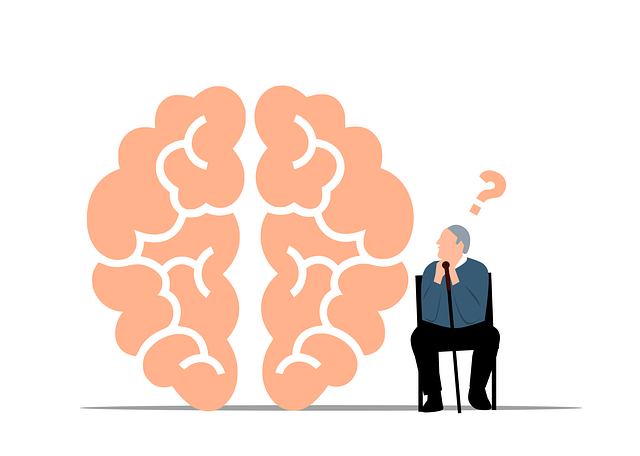Highlands Ranch Neuro Disorders Therapy tackles the challenges of mental illness diagnosis through integrated approaches. They combine public awareness, self-awareness exercises, emotional regulation techniques, and evidence-based tools to navigate complex symptoms and personal histories. By considering individual differences, family dynamics, and environmental factors, they ensure accurate and timely diagnoses. Their method includes cultural competency training for healthcare providers, mindfulness practices, and stress reduction techniques to enhance patient-provider communication and understanding of diverse mental states.
Mental illness diagnosis accuracy is a critical aspect of patient care, yet current challenges persist. This article delves into the complexities of mental health assessment and limitations of traditional methods, highlighting the far-reaching impacts of misdiagnosis and underdiagnosis. We explore innovative solutions such as advanced neuroimaging, AI-powered tools, and tech-integrated psychological assessments to enhance accuracy. Additionally, we present Highlands Ranch Neuro Disorders Therapy as a model for improvement, showcasing its unique program features, successful patient outcomes, and community impact, offering insights into its potential for widespread adoption.
- Current Challenges in Mental Illness Diagnosis
- – Exploring the complexities of mental health assessment
- – Limitations of traditional diagnostic methods
Current Challenges in Mental Illness Diagnosis

Mental illness diagnosis faces significant challenges due to the complex nature and diverse symptoms of various conditions. Often, individuals experience a range of non-specific signs that can be easily overlooked or misattributed to other causes, hindering early intervention. The multifaceted aspect of mental health makes it difficult for healthcare professionals to pinpoint precise diagnoses, especially when dealing with milder forms or co-occurring disorders. This complexity is further compounded by the high degree of subjectivity involved in assessment, as personal experiences and interpretations can influence perception.
In Highlands Ranch Neuro Disorders Therapy, these challenges underscore the importance of integrated approaches. Public Awareness Campaigns Development plays a crucial role in educating the community about mental health issues, fostering self-awareness exercises that encourage individuals to recognize their own symptoms. Additionally, promoting emotional regulation techniques can empower people to manage their conditions better and seek help when needed. By combining these efforts with evidence-based diagnostic tools, therapists can navigate this intricate landscape, ensuring more accurate and timely mental illness diagnosis and subsequent treatment.
– Exploring the complexities of mental health assessment

Mental health assessment is a complex process that involves understanding a patient’s symptoms, personal history, and overall well-being. At Highlands Ranch Neuro Disorders Therapy, we recognize the importance of accurate diagnosis for effective treatment. The challenge lies in the multifaceted nature of mental illness, which can often present with overlapping symptoms across various disorders. This complexity demands a nuanced approach where healthcare professionals consider not just current manifestations but also individual differences and life circumstances.
For instance, a patient’s mood, thinking patterns, and behaviors must be carefully evaluated within the context of their personal history, family dynamics, and environmental factors. Additionally, risk management planning for mental health professionals is crucial to ensure safe and evidence-based practices. By integrating resilience-building strategies into assessment protocols, we aim to not only improve diagnostic accuracy but also foster a supportive environment that encourages healing and growth.
– Limitations of traditional diagnostic methods

Traditional diagnostic methods for mental health conditions often rely on clinical interviews and standardized questionnaires, which can have their limitations. These approaches may miss subtle symptoms or vary in interpretation between healthcare providers, leading to potential misdiagnosis or delayed treatment. For instance, cultural factors and biases can influence how symptoms are presented and understood, affecting the accuracy of diagnoses, especially in diverse populations.
In Highlands Ranch Neuro Disorders Therapy, efforts to enhance diagnostic accuracy involve addressing these challenges. One promising strategy is implementing Healthcare Provider Cultural Competency Training to ensure a more nuanced understanding of various cultural contexts. Additionally, incorporating practices like Mindfulness Meditation and Stress Reduction Methods can provide valuable insights into an individual’s mental state and promote better patient-provider communication, ultimately refining the diagnostic process.
Mental illness diagnosis accuracy has long been a complex issue, but with an understanding of current challenges and the limitations of traditional methods, we can make significant strides forward. By leveraging advanced assessment techniques and integrating innovative technologies, such as those employed by Highland Ranch Neuro Disorders Therapy, we are better equipped to pinpoint accurate diagnoses. This enhances patient care, improves treatment outcomes, and ultimately fosters a healthier, more supportive society.














